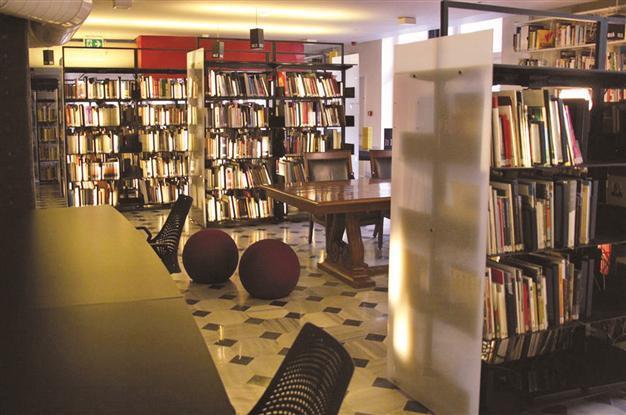SALT art venues begin to share archives in e-publication format
ISTANBUL - Hürriyet Daily News

Readers are able to select the parts they would like to read from different e-books and construct their own book. After determining the title and selected contents, their customized books will be ready.
Aiming to transform itself into a “post-paper” institution, refraining from printing “junk-worthy” publications and communications, SALT began e-publishing this June. Having published four printed books since it was founded in April 2011, SALT now shares its publications with the public in e-book format.SALT’s e-books can be read free of charge in PDF and e-publication formats; and they can be downloaded on tablets and readers. This easily accessible e-platform is available universally and, along with all of SALT’s activities, is free.
The first version of this e-publishing platform also provides a unique new service. Readers are able to select the parts they would like to read from different e-books and construct their own book. After determining the title, cover, and selected contents, their customized books will be ready for download in a few minutes and will be sent to their e-mail address.
In line with the flexibile nature of e-publishing, SALT will update its e-books with new versions as and when new material or discussions on the same topic are produced and available. As a result, SALT’s publications will never be “completed,” as they will remain open to continuous revision.
New and customizable reading models
The most common form of sharing information in the cultural sector is no longer through printed books with an average print run of 1,500 copies, most of which wait in warehouses despite the serious time and effort spent in distribution and sales. Recent research shows that e-books are making considerable gains on printed books in terms of copies sold.
In print publishing, the relationship between intellectual production and the final product, the book, consists of a well-established series of production mechanisms. All the stages of publication – graphic design, type of paper, printing techniques, distribution and sales - become secondary processes, alienating the creator of the work at every step. Marshall McLuhan, the renowned communications theorist, referred to the world created in the wake of the invention of the printing press as the “Gutenberg Galaxy.” Everyone in this galaxy is able to read, but instead of “public” reading, in which different opinions are expressed, “private and silent” reading is the norm. Today, however, a reader can underline passages in an e-book, write notes and comments in its margins, customize and share it with others. With the advent of e-publishing, the solitary reading model of the “Gutenberg Galaxy,” which has no room for intervention or sharing, is undergoing a radical change.
SALT’s e-publication platform will also include the publications of other institutions on shared or related topics. Today, accessibility is no longer a preference, but a requirement, because information is produced in all four corners of the world. SALT says it firmly believes that accessibility is a must in sharing with the world the cultural heritage and contemporary culture of Turkey. The institution aims to bring locally produced information to other information hubs throughout the world and chooses to “change within the process of change,” rather than being a passive spectator.
















